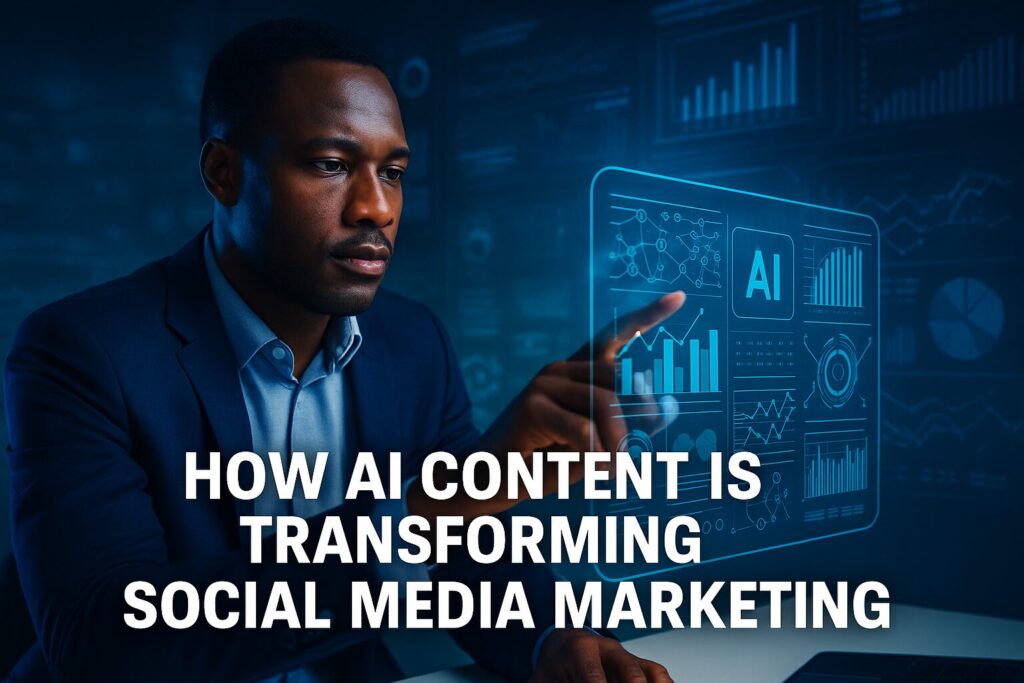How Artificial Intelligence Is Transforming Content Creation, Personalization, and Scale—And What Marketers Need to Know

Introduction: Why AI in Social Media Marketing Matters Now
Artificial intelligence (AI) in marketing is no longer just a futuristic fantasy. As Ben Bard and Richard Butler Jr. explore in the latest episode of the Grow With Technology podcast, AI is deeply embedded in today’s social media marketing landscape. The technology is revolutionizing everything from how we interpret mountains of data, to how we create, personalize, and scale content. Let’s unpack how AI is reshaping the game, the tools that power this shift, real-world success stories—and the critical challenges marketers must navigate.
Speed, Scale, and Smart Targeting: The New Norm
One of the first and most significant leaps AI brought to marketing was sheer speed. Gone are the days when marketers painstakingly sifted through data manually. Today, AI can analyze millions of comments, likes, and shares in seconds. As Richard points out, traditional methods were slow and error-prone; the insights often arrived too late. AI turns this paradigm upside down by instantly spotting patterns and trends that humans would otherwise miss. This means campaigns are no longer built on broad assumptions, but on precision targeting, making every marketing dollar count and boosting return on investment.
Prediction Powers: Foresight Over Guesswork
Another huge advantage? AI’s predictive capabilities. By crunching historical data, AI forecasts trends and consumer behaviors with impressive accuracy. While it’s not a magic crystal ball, it empowers brands to make smarter, faster decisions. Marketers can jump on emerging trends before they peak, optimizing their strategies in real-time rather than playing catch-up. As Ben highlights, this foresight capability is about using data to anticipate, rather than simply react.
Content Creation and Consistency: Breaking the Bottleneck
Content remains every marketer’s challenge—how to keep the pipeline full, fresh, and relevant. The podcast emphasizes that AI automates labor-intensive tasks like brainstorming, drafting, editing, and scheduling posts. This allows human creatives to focus on the bigger picture—strategy and storytelling—while AI ensures consistency in posting. It’s a win-win: teams maintain their presence without burning out, and brands get the continuous engagement they need.
Personalization at Scale: Tailoring Experiences for Everyone
Perhaps AI’s most exciting capability is hyper-personalization. Algorithms analyze individual user histories, interactions, and preferences to serve up content and recommendations that truly fit, replacing generic messages with tailored visuals and offers. This dynamic is no longer reserved for industry giants—AI makes it scalable for brands of all sizes, and even for those operating globally who need to localize content for diverse audiences.
Behind the Curtain: Tools Fueling the AI Revolution
So, what are the top tools?
- For social monitoring and sentiment analysis, the report celebrates platforms like Hootsuite Insights, which can detect real-time trends and advise optimal post timing.
- On the design side, Canva’s integrated AI is democratizing creative production—generating templates, suggesting layouts and colors, enabling even small businesses to build on-trend visuals.
- For copywriting, Jasper uses advanced natural language processing (NLP) to craft compelling posts, ad copy, and blog drafts, often with built-in SEO and plagiarism checks.
Proof in Practice: Retail and F&B Successes
Big brands are already seeing major results. H&M uses AI to personalize product recommendations based on your browsing and purchase history, which translates into higher engagement and sales. Starbucks tracks your purchases and habits, then delivers personal offers—keeping customers coming back. Coca Cola leverages AI for real-time social listening, responding instantly to major cultural moments for maximum brand impact.
Challenges: Bias, Authenticity, and Data Privacy
But with great power comes responsibility. If the data that trains AI is biased, those biases can impact targeting and messaging—risking exclusion or offense. Richard emphasizes the need for rigorous data auditing. AI can also make content sound flat unless humans remain involved for creativity and emotional nuance. And with personalization comes the crucial task of ensuring data privacy and compliance with regulations like GDPR and CCPA.
The Road Ahead: Video, AR/VR, and Voice
Looking forward, growth areas include automated video creation, immersive AR/VR experiences tailored by AI, and voice-optimized content for smart speakers. As AI continues to evolve, marketers must stay ahead by refining creativity, strategy, and ethical responsibility—making sure human expertise enhances, rather than competes with, these powerful new capabilities.
Conclusion: Human Skills Still Matter Most
AI in social media marketing is no longer hype—it’s a real, strategic advantage. The secret to success? Smart planning, constant monitoring, and never losing sight of the uniquely human skills that drive innovation and connection. As Richard poses the big question: with AI automating much of content creation, where should human marketers focus their expertise next? The answer will define the future of the industry.
